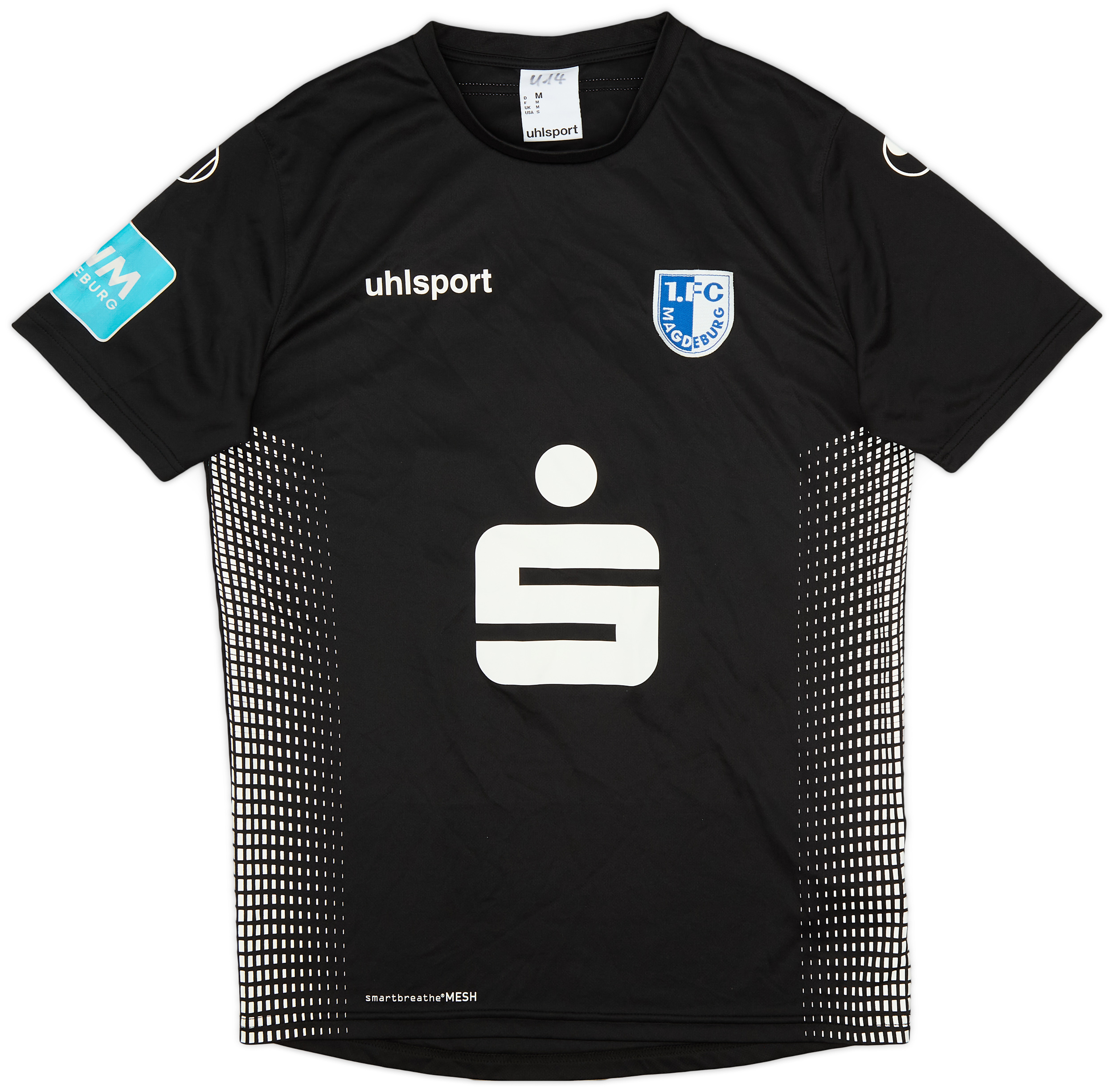Magdeburg
Introduction 1. FC Magdeburg, often simply referred to as Magdeburg, is a prominent football club based in the eastern part of Germany. Founded in 1965, it has become a symbol of pride for the city of Magdeburg and holds a unique place in the landscape of German football. The club has transitioned through various tiers […]
2024-25 Magdeburg Third Shirt
88.99£ - ca: €105
2024-25 Magdeburg Away Shirt
82.99£ - ca: €98
2024-25 Magdeburg Home Shirt
82.99£ - ca: €98
2019-20 Magdeburg Youth Third Shirt #2 - 9/10 - (M)
35.99£ - ca: €42
2020-21 SC Magdeburg Home Shirt (M)
35.99£ - ca: €42
2018-19 Magdeburg Youth Third Shirt #19 - 9/10 - (M)
35.99£ - ca: €42
2018-19 FC Magdeburg Third Shirt #15 - 9/10 - (S)
35.99£ - ca: €42
2018-19 FC Magdeburg Youth Third Shirt #16 - 9/10 - (M)
35.99£ - ca: €42
2021-22 Magdeburg Away Shirt - 5/10 - (XL)
23.99£ - ca: €28
2019-20 FC Magdeburg Youth Home Shirt #12 - 8/10 - (S)
17.99£ - ca: €21
2019-20 FC Magdeburg Home Shirt - 9/10 - (5XL)
17.99£ - ca: €21
2019-20 FC Magdeburg Youth Home Shirt #8 - 8/10 - (S)
17.99£ - ca: €21
Introduction
1. FC Magdeburg, often simply referred to as Magdeburg, is a prominent football club based in the eastern part of Germany. Founded in 1965, it has become a symbol of pride for the city of Magdeburg and holds a unique place in the landscape of German football. The club has transitioned through various tiers of German football, participating in both the East German leagues and later, the unified German leagues post-reunification. With a passionate fanbase, rich history, and promising future, Magdeburg encapsulates the spirit of determination and resilience inherent in the world of football.
Club History
1. FC Magdeburg was founded on April 17, 1965, and quickly established itself in East Germany’s football hierarchy. It burst onto the scene in the 1970s, becoming a force in the national league, known as the DDR-Oberliga. One of the key moments in the club’s early history came in 1972 when Magdeburg clinched its first East German championship, marking the beginning of a golden era. The club gained further international recognition by winning the UEFA Cup Winners’ Cup in 1974, making them the only East German team to secure a UEFA trophy. The club’s history is punctuated by various challenges, including political upheaval and changes in the football landscape, particularly during the reunification of Germany in the 1990s, which compelled the club to adapt to the new unified league system.
Achievements
1. FC Magdeburg’s accomplishments in both domestic and international football are noteworthy. The club won the DDR-Oberliga title two times, in 1972 and 1974. Additionally, the pinnacle of Magdeburg’s success came with the triumph in the 1973-1974 UEFA Cup Winners’ Cup, where they defeated the defending champions, A.S. Roma, in the finals. Throughout the years, Magdeburg has also had participation in the DFB-Pokal, Germany’s premier national cup competition, demonstrating its competitive spirit and determination. In recent years, the club has achieved promotion to the 2. Bundesliga, the second tier of German football, showcasing its resurgence and potential as a contender in the modern era.
Significant Players and Matches
Throughout its history, 1. FC Magdeburg has been home to several notable players who have left an indelible mark on the club. Legends such as Gerd Schönfeld and Klaus Sammer contributed significantly to the club’s success during the 1970s. More recently, players like Timo Perthel and Christian Beck have played pivotal roles in the resurgence of the club in lower division football. Landmark matches include the memorable UEFA Cup Winners’ Cup final in 1974, where the Magdeburg side executed a courageous performance against A.S. Roma, as well as crucial games in the 2. Bundesliga that solidified their promotion ambitions. These matches not only reflect the club’s competitive spirit but also foster an unwavering connection between the players and the passionate fanbase.
Cultural Impact
1. FC Magdeburg is more than just a football club; it’s a cultural cornerstone in the city and surrounding region. The club’s iconic blue and white colors resonate deeply with local identity and pride. Home games at the MDCC-Arena create an electrifying atmosphere, with fans displaying unwavering loyalty and support. The club’s community initiatives and outreach programs have also played a crucial role in fostering a strong bond with the local population. Magdeburg’s football culture celebrates not just the sport itself, but also promotes values like teamwork, resilience, and unity. The rivalry with other clubs, particularly Hallescher FC, adds to the local football culture, enhancing the competitive spirit among fans and players alike.
Conclusion
In summary, 1. FC Magdeburg holds a distinguished place in the annals of football history, reflecting both the challenges and triumphs of the sport in Germany. With its storied heritage marked by significant achievements, legendary players, and a devoted fanbase, the club is emblematic of the community it represents. As Magdeburg continues to compete in the 2. Bundesliga and works towards reclaiming its position among Germany’s elite clubs, it remains a cherished institution in both local and national football landscapes. Its legacy not only celebrates past successes but also points towards a promising future as it continues to inspire generations of football enthusiasts.











